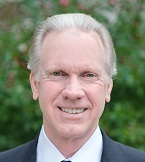By Bob Allen
A Southern Baptist Convention public-policy spokesman described medical marijuana as the “Trojan Horse of the marijuana legalization movement” in an online commentary published Nov. 7 by the SBC Ethics and Religious Liberty Commission.
 Barrett Duke, vice president for public policy and research for the denomination’s agency for moral and religious liberty concerns, said the legalization of recreational marijuana in Oregon and Alaska in the recent election reveals the strategy of the pro-marijuana crowd.
Barrett Duke, vice president for public policy and research for the denomination’s agency for moral and religious liberty concerns, said the legalization of recreational marijuana in Oregon and Alaska in the recent election reveals the strategy of the pro-marijuana crowd.
“They begin by playing on the public’s compassion with medical marijuana, and then follow up with their true agenda — the widespread legalization of recreational marijuana,” Duke said.
Both states have had legal medical marijuana since 1998. Colorado and Washington State, which legalized marijuana for recreational use in 2012, also had medical marijuana laws on their books for more than a decade.
“Once a state legalizes medical marijuana, proponents know it’s just a matter of time until they can advance their real agenda,” Duke said. “Apparently, it takes about 15 years to desensitize the public enough to the dangers of marijuana to achieve the next step toward full legalization.”
“No state has legalized recreational marijuana without first legalizing medical marijuana,” Duke said. “The lesson for all the states is clear: if you legalize medical marijuana, it’s just a short matter of time before you will be contending with the likelihood of legal recreational marijuana.”
Duke said Florida voters spared themselves from a similar fate in voting to reject medical marijuana. The Florida Baptist Convention’s State Board of Missions passed a resolution in September saying the board “does not believe legalizing an addictive drug without strong regulatory oversight is an appropriate solution” and calling on Florida Baptist pastors to encourage church members to oppose a ballot initiative to amend the state’s constitution to allow medical marijuana.
In September a small Southern Baptist church in Central Florida backed out of a deal, under pressure from its local Baptist association, to allow the opening of a nearby medical marijuana facility.
Arkansas Baptists passed a resolution opposing medical marijuana in 2013.
Medical marijuana is used to help treat symptoms like pain, nausea, vomiting and lack of appetite. It’s used by people with cancer, AIDS, multiple sclerosis, epilepsy and other conditions. While it is against federal law to possess, sell or grow marijuana for any purpose, about a dozen states have passed laws allowing limited use for medical reasons.
According to Wake Forest Baptist Health, the medical use of marijuana has been studied for decades, but experts still don’t agree on how safe it is or how well it works. Some medical experts don’t recommend it, because it isn’t approved by the FDA and there are other drugs that don’t harm the lungs or impair a patient’s ability to do things like study or drive a car. Others say it can provide pain relief without the side effects of normal pain medications and improve appetite and relieve nausea in people who have cancer or AIDS.
Duke said with so much at stake in the debate over medical marijuana, the church must respond.
“First, Christians must make sure they balance their compassion with discernment,” he wrote. “While we want to do all we can to help people, we must see through what has become the obvious true goal of legalizers. Christians must not allow themselves to be used for an agenda that will result in thousands of destroyed lives. Marijuana is an addictive, mind-altering substance that is nearly impossible to use in moderate doses. It has been a gateway drug for millions of users. Making it more accessible will lead to more drug addiction and all the social costs associated with drug abuse.
“Second, Christians must not allow themselves to be persuaded that marijuana is an acceptable medical remedy. Using marijuana exposes a person to multiple toxic compounds and serious personal negative repercussions. Marijuana puts the user at higher risk for cancer, psychosis, strokes, respiratory damage and heart attacks. It interferes with work and relationships.
“Third, Christians must stay engaged in local debates and politics to help keep their communities as drug-free as possible. The path from medical marijuana to recreational marijuana does not have to be inevitable…. Neighbor love requires that we look out for our fellow citizens. We can help by resisting the deceptive messages of the marijuana purveyors and show up at the polls every time our state is asked to take the next step toward marijuana’s legalization.
“Finally, churches must engage their communities. Churches must continue to promote healthy lifestyles as a key to human flourishing for their own members as well as for the public in general. Drug abuse is not compatible with human flourishing. Christians can emphasize this by maintaining drug-free lifestyles themselves and helping their communities understand the connection between drug-free lifestyles and personal potential. In addition, churches should provide services that can help people in their communities overcome drug addiction and reclaim their lives. Jesus not only saves the soul. He also restores broken lives. Churches must offer this message of hope and opportunity to their communities.”
“While many states are falling for the lie of marijuana’s harmlessness, the church does not have to be taken in,” Duke said. “The Bible’s call to personal purity and sobriety has not changed. We must remain faithful to its call and not be deceived by the culture’s call to personal indulgence.”
Previous stories:
Baptist church says ‘no’ to medical marijuana farm
